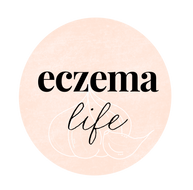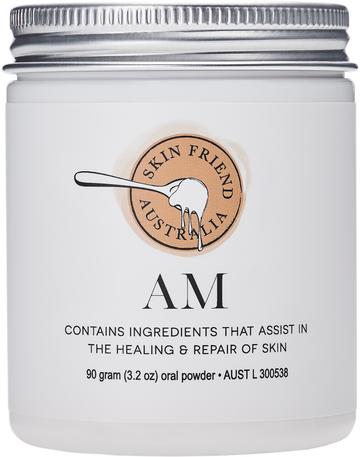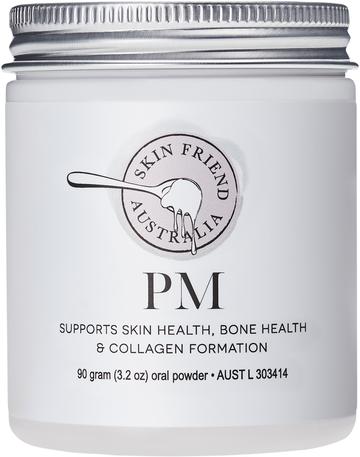The Itchy Dozen Worst Foods For Eczema
Read the updated version of The Itchy Dozen here.
The Itchy Dozen:
Eczema allergy foods include egg, dairy, nuts and wheat but did you know some of the worst foods for eczema are ones that are rich in preservatives and natural chemicals?
- Salicylate sensitivity is the most common eczema sensitivity, affecting more than 60 percent of people with eczema. Salicylates are a natural pesticide made by many fruits and vegetables.
- More than 50 percent of people with eczema react to preservatives.
- 35 percent of eczema sufferers experience a worsening of eczema symptoms when they eat glutamates including MSG-containing foods.
- 36% of eczema sufferers experience a worsening of eczema symptoms when they eat amine-rich foods (large amounts of amines are found in chocolate, cheese, wines, beer, yeast and avocado).
- More than 90% of eczema sufferers are sensitive to a range of chemicals, both natural and artificial, and experience a worsening of symptoms as a result.
Not counting allergy foods, here are the general foods and beverages most likely to give you itchy skin or cause your eczema to flare up:
1. cow’s milk and other dairy products: After egg, dairy products, including cow’s milk, yoghurt, butter and cheese, are the second most common allergy food seen in eczema sufferers. Dairy products can cause damage to the lining of the gastrointestinal tract. When the gut lining is damaged from eating dairy products, tiny holes allow larger food particles to enter the body and allergic reactions and sensitivities can result. Naturopaths often refer to this as 'leaky gut syndrome' and the medical term doctors use is 'increased intestinal permeability'.
2. grapes: (including wines, sultanas, raisins and grape-containing juices): If you have eczema or asthma, grapes and grape-products such as wines, sultanas, raisins and juices, are a “triple threat”, as they are very rich sources of three natural chemicals: salicylates, amines and monosodium glutamate (MSG). Grapes are a highly acidic fruit that promotes acid in the body and this also increases the itch of eczema.

3. oranges (and orange juice): Oranges and orange products including juices have similar properties to grapes and tomatoes as they are a strongly acidifying fruit, and are rich sources of both salicylates and amines.
4. kiwi fruit: Kiwi fruit is another strongly acidifying fruit, high in salicylates and amines, and they’re absolutely no good for eczema and other skin rashes.
5. soy sauce/tamari sauce: Soy sauce and other sauces including tamari and marinades are very rich in amines and MSG (both natural or artificial), so they are problematic for eczema sufferers. According to a Japanese study published in the Journal of Dermatology, consuming soy sauce, fermented soybeans, chocolate, cheese, coffee and yoghurt causes a worsening of eczema symptoms. After the participants avoided these foods for three months 100% of them had reduced eczema symptoms.
6. tomato and products containing tomato: Tomato and products containing tomato including tomato ketchup and spaghetti bolognaise, are another triple threat as they are very rich sources of salicylates, amines and natural MSG. And while raw tomato is alkalising and contains skin-protective lycopene, cooked tomato is highly acidifying, making cooked tomato an incredibly “itchy” food.
7. avocado: While avocado is a healthy addition to your diet when you don't have eczema, avocado is one of the richest sources of amines and itch-promoting salicylates so it can worsen eczema symptoms. If you treat your salicylate sensitivity, over a 12-week period or more, you should be able to eat avocado in moderation within a few months of avoiding it.
8. dark green vegetables (broccoli, spinach, silver beet, wheatgrass juice etc.): Dark leafy greens including broccoli, spinach, silverbeet and kale are good for overall health but they are unfortunately problematic while you have eczema. Broccoli, spinach, silverbeet and kale can trigger a worsening of eczema symptoms because they are another 'triple threat' -rich sources of salicylates, amines and natural MSG.
9. dried fruits (apricots, dates, figs etc.): All types of dried fruits including dried apricots, dates and sultanas, are high in salicylates, MSG and amines, and some contain the “itchy” preservative sulphur dioxide (sulfites). In fact, dried fruit could be called a quadruple threat, and should not be in your (or your child’s) lunch-box if eczema symptoms are present.
10. deli meats (sausages, ham, bacon, meats with flavour enhancers etc.): Deli meats including sausages, ham, bacon and flavoured meats, to name but a few, are high in nitrates, flavour enhancers and saturated fats, which are all enemies of eczema. Deli meats, beef and pork are also highly acidifying once digested and this contributes to the daily itch.
11. corn and products containing corn: Corn and products containing corn such as Cornflakes, popcorn and corncakes can increase the itch of eczema because corn is very rich in salicylates and strongly acidifying (once digested).
12. junk food, especially coloured lollies and sweets: Junk food, especially coloured lollies (sweets) and chips (crisps), usually contain artificial colours and flavours, including MSG and other artificial flavour enhancers and they are highly acidifying due to the high sugar and fat content.
Why are acidifying foods a problem for eczema?
A typical western diet is rich in strongly acidifying foods including corn, wheat, food additives and preservatives and red meat. When you eat too many acid-producing foods and not enough alkalising ones, your diet disrupts your body's acid-alkaline balance. This can trigger itchy skin. Your body compensates for this acid imbalance by leeching calcium from your bones in order to keep your blood slightly alkaline. It is better to add alkalising foods into your diet to aid acid-alkaline balance.
Eczema safe alternatives
- Organic rice milk, organic soy milk (Not "soy isolate" - favour "whole soy bean"), and drink in moderation (not essential to have milk alternatives).
- Lean lamb, free-range chicken, beef bones in broth,lean lamb/veal/chicken mince (ask butcher for additive-free or freshly made mince). Vegetarians and vegans can favour legumes, beans, lentils, raw cashews, GF grains and flaxseeds)
- Baked or grilled trout or smaller white fish
- Peeled pear, banana (non sugar variety), papaya
- Carrot, celery, potato, sweet potato, green beans, brussels sprouts, cabbage (white and red)
- Iceberg lettuce
- Fresh parsley
- Leeks, spring onions/shallot and fresh garlic
How does changing your diet help eczema?
Avoiding “itchy” foods and eating a nutritious, low chemical diet for about 12 weeks reduces the chemical load on your liver and reduces toxins in your digestive tract. This gives your liver a chance to stock up on the nutrients needed to process chemicals more effectively. With the help of nutritional supplements, then you can slowly expand your diet.
FAQ: "I love many of the foods on the Itchy Dozen list... So what can I eat?"
Don't worry, there are many foods you can eat (and you don't have to eat Brussels sprouts if you don't want to). The complete shopping list, menus and recipes can be found in The Eczema Diet and The Eczema Detox books, and the list comes with the Skin Friend product that helps to reverse salicylate sensitivity (over time) so you can expand your diet again.
I've worked with hundreds of eczema patients at the Eczema Life Clinic and many of them love the Itchy Dozen (I wonder if people are sometimes addicted to the foods they are sensitive to). However, their skin improves when we modify their diet and I prescribe Skin Friend for their eczema. The Skin Friend nutritional supplements contain the specific nutrients that help the liver detoxify salicylates and chemicals.
This is an edited extract from The Eczema Diet by Karen Fischer. Article may not be reproduced without written permission from the author.
Products
At Eczema Life, we recommend nutritionist Karen Fischer's low food chemical program (The Eczema Detox) along with additive-free supplements for skin health and wellbeing. Click on the images to view more details:
References & supporting research
Fischer, K., 2014, The Eczema Diet, Second edition, Exisle Publishing.
Scotter, Michael J., et al. "Free salicylic acid and acetyl salicylic acid content of foods using gas chromatography–mass spectrometry." Food chemistry 105.1 (2007): 273-279.
Loblay, R.H. and Swain, A.R., 2006, ‘Food Intolerance’, Recent Advances in Clinical Nutrition, retrieved 1 April 2011: www.nsw.gov.au (Australian Government website).




